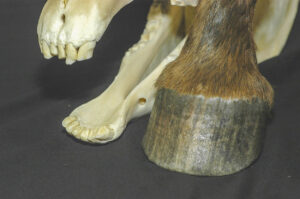Foals and CPR: What You Should Know
- Topics: Article, Foal Care, Foaling & Foaling Problems
Some foals do not breathe when they are born, particularly following a difficult birth. And, in these cases, knowing cardiopulmonary resuscitation (more commonly known as CPR) techniques for newborn foals can be a very useful skill.
If you catch the foal in time and do the procedure correctly, your baby could be one of the 40-90% that can get back to normal, healthy blood circulation and breathing, a team of European scientists says.
“Most foals are born without a problem,” said Kevin Corley, BVM&S, PhD, Dipl. ECEIM, ACVIM, ACVECC, MRCVS, researcher at Veterinary Advances in The Curragh racetrack, in Country Kildare, Ireland. “However, if a foal needs CPR at birth, there is no time to look anything up or learn at the time. So neonatal equine CPR is one of those things that you should learn and hope you never need.”
Unlike humans, who often go into cardiac arrest because of a heart problem, young horses will usually go into cardiac arrest after they’ve stopped breathing, Corley said. If foals are deprived of oxygen due to a long and difficult birth; premature separation of the placenta; umbilical cord issues; or smothering by the fetal membranes, they can stop breathing or fail to breathe in the first place
Create a free account with TheHorse.com to view this content.
TheHorse.com is home to thousands of free articles about horse health care. In order to access some of our exclusive free content, you must be signed into TheHorse.com.
Start your free account today!
Already have an account?
and continue reading.

Related Articles
Stay on top of the most recent Horse Health news with

















